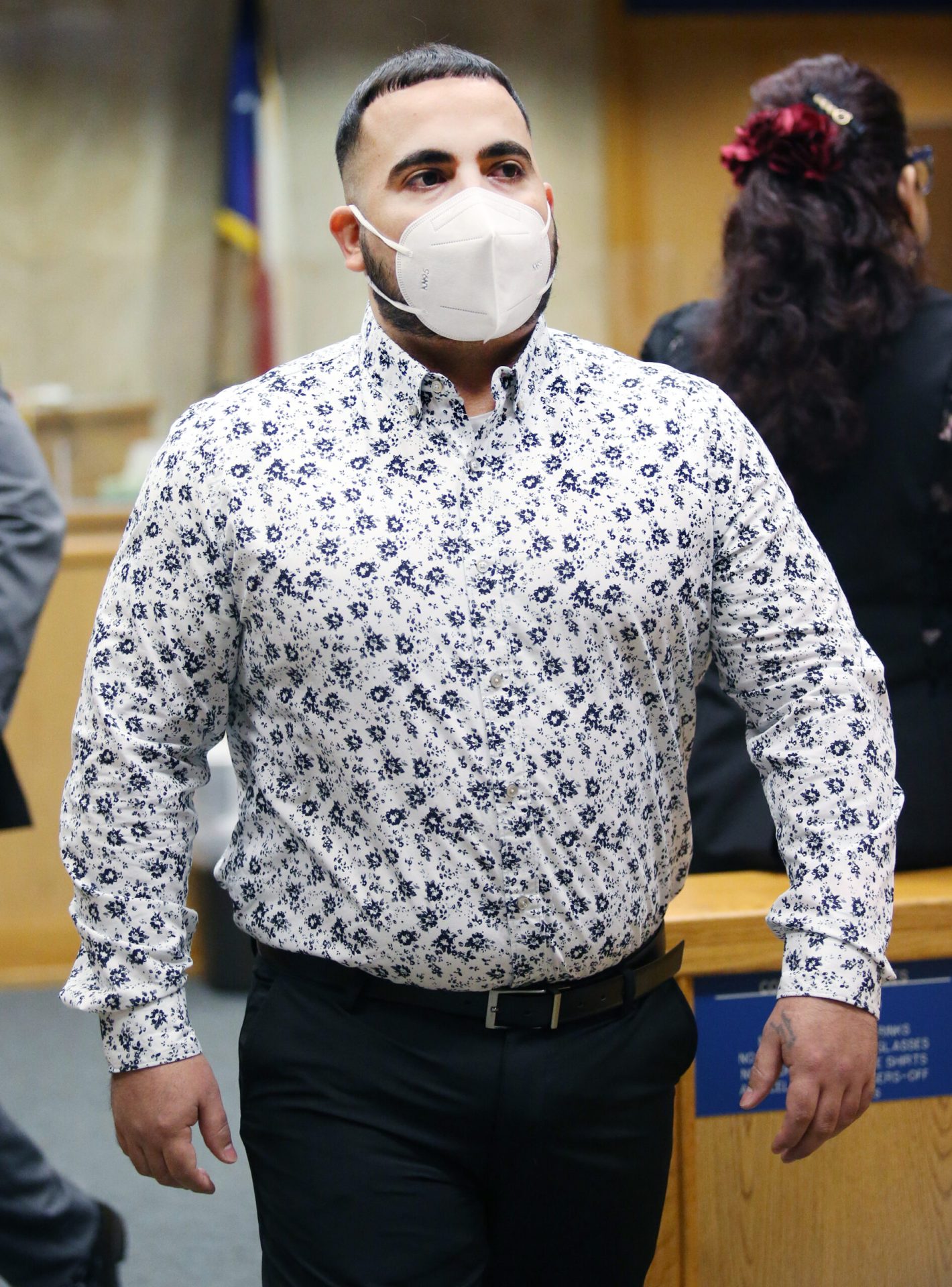
EDINBURG — A forensic psychiatrist testified Tuesday that voices guided a 31-year-old Mission man accused of a quadruple 2016 shooting at a Palmview H-E-B and interfered with his understanding of right and wrong.
The opinion comes from McAllen psychiatrist Tomas A. Gonzalez who took the stand during the fifth day of testimony in the trial of Raul Lopez, who is accused of shooting and killing 48-year-old Mario Pulido and injuring Rafael Martinez, then 37, Frailan Garza, then 51, and Billy Joe Martinez, then 33, on Nov. 28, 2016, at the grocery store at Goodwin Road and U.S. Expressway 83 at approximately 3:30 a.m.
Lopez is charged with murder, three counts of attempted murder, three counts of aggravated assault with a deadly weapon and a count of attempted capital murder of multiple persons.
He has pleaded not guilty to the charges and is pursuing an insanity defense.
Gonzalez told jurors that after three meetings with Lopez between July 2017 and December 2019, and after speaking with the man’s family members and reviewing evidence to include jail infirmary records, Lopez’s 9-1-1 call to police after the shooting and a video of his interrogation, he concluded that the man suffers from schizophrenia.
The court had appointed him to provide a medical opinion regarding Lopez’s mental health and whether he understood the difference between right and wrong on the day of the shooting.
Asked for his medical opinion, Gonzalez said Lopez didn’t understand what he was doing was wrong, and in his mind thought he was doing the right thing.
Gonzalez also told jurors that schizophrenia interfered with the defendant’s understanding of his behavior and actions, which the forensic psychiatrist said was guided by voices.
The forensic psychiatrist told jurors it is his opinion that Lopez has suffered from schizophrenia since his teenage years when he showed violent and aggressive behavior.
On Monday, Lopez’s ex-wife, his mother and his sister took the stand and described instances of that behavior.
Gonzalez also explained to the jury that mental illness is genetic and that both of Lopez’s parents suffer from it. His biological father has bipolar disorder and his mother suffers from depression.
He also said schizophrenia has a crescendo effect where it builds slowly over many years and can be impacted by trauma and drug use until it reaches a point where people who suffer from this illness break from reality.
Testimony has shown that Lopez experienced multiple traumatic events during his childhood, including witnessing domestic abuse at the hands of his biological father and having to identify the body of his brother, who was shot 13 times and killed in Mexico.
On Tuesday, evidence indicated that Lopez also used marijuana, which Gonzalez said was another factor impacting the severity and onset of his mental illness.
That drug use was a point of discord in his marriage and he had quit using it prior to the fatal shooting and was not under the drug’s influence at the time, according to Gonzalez’s testimony.
The forensic psychiatrist said Lopez experienced audio hallucinations and paranoia, with Lopez being scared and armed because he believed “they” or “them” were following him.
During the first interview, Lopez told Gonzalez how “they” or “them” were the CIA or the government or “the forces” or the “cyber police” or aliens, who spied on him through phones and televisions.
He also thought drug traffickers were following and spying on him.
Lopez also believed there was “a worker” projecting the voices behind his co-workers, Gonzalez said.
The forensic psychiatrist said Lopez believed that if he hadn’t fired at least 15 shots from a 9mm Desert Eagle handgun that day that he would have lost his family.
He said the people that Lopez believed were following him were not his co-workers.
“He had no reason to hurt his co-workers,” Gonzalez said.
The doctor was also questioned about whether he thought Lopez was faking a mental illness for benefit.
Gonzalez said that is not his opinion.
“Why would you fake something for so long,” he said.
After defense attorney O. Rene Flores finished questioning Gonzalez, prosecutor Maggie Hinojosa took over and she had a line of questioning that intended to show that Lopez knew what he was doing was wrong because he called 9-1-1, told investigators where the gun was, tried to get information about what he would be charged with and asked about consequences.
That exchange became tense as Gonzalez pushed back at her questioning, saying she was parsing the evidence and not taking it in its full context, which is what must be done to understand why Lopez did what he did.
At one point he accused the state of mocking and belittling people diagnosed with schizophrenia and even told her that it’s possible Lopez has been suffering from auditory hallucinations during the trial, pointing out that he had barely moved in his chair during the entirety of Tuesday’s questioning.
In fact, Lopez has looked the same during each day of his trial. He barely moves in his chair and though he wears a facemask, he has an apparent blank look on his face.
Gonzalez had also taken issue with a line of questioning from the prosecutor that led to a question about Lopez’s use of an ear piece, which he uses so he can hear a Spanish translation of the proceedings.
Hinojosa’s cross examination of Gonzalez is scheduled to continue Wednesday morning.
PREVIOUS COVERAGE:
Palmview H-E-B ‘mass shooting’ trial may come down to a battle of the experts




